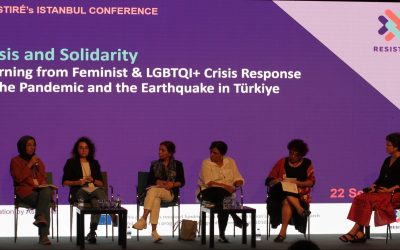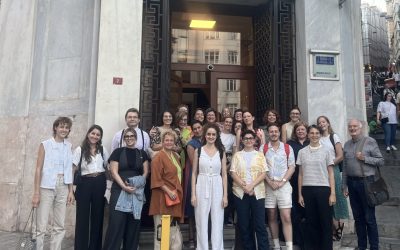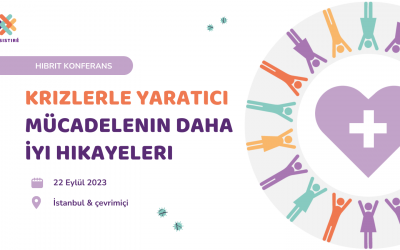Concluding its first research cycle, the RESISTIRÉ project delivered a set of 8 factsheets to suggest practical recommendations to mitigate the social, economic, political, and environmental effects of Covid-19 policy responses on gender equality. In this new podcast series, we explore some of RESISTIRÉ’s findings and recommendations with project partners.
This episode focuses on gender mainstreaming. Although it has been adopted as an approach in EU policymaking for over two decades, COVID-19 national-level policies are largely still not mainstreamed. Gender mainstreaming should not only be an ambition, it should also be implemented, monitored, and evaluated, with concrete results and impact. Our guests are Anne-Charlott Callerstig and María López Belloso, two of the researchers who investigated the topic.
Dr Anne-Charlott Callerstig is a Senior Researcher in Gender Studies at the Centre for Feminist Social Studies (CFS) in Örebro University, Sweden. Anne-Charlott has experience from both research and working practically with gender equality policy issues and gender mainstreaming in Sweden and on a European level. Her focus of work includes gender mainstreaming, equality policy and organisation, policy implementation and evaluation, public administration, gender and labour market politics, and interactive research approaches. She is a researcher in the ongoing project. RESISTIRÉ; Responding to outbreaks through co-creative equality strategies that is gathering ten European partners and a wider network of researchers to analyse the impact of COVID-19 policies on gendered inequalities, financed under Horizon2020. Recent publications include: “The challenges in integrating horizontal perspectives in sectoral policy evaluation” (Policy studies, 2020, lead author Karolin Sjöö) and “From glass ceiling to firewalls: detecting and changing gendered organizational norms” (NORA, 2021, lead author Susanne Andersson).
María López Belloso (PhD) is a lecturer and researcher at the Social and Human Sciences at the University of Deusto. She holds a degree in Law from the University of Deusto, MA in Humanitarian Action (NOHA) and a PhD in Human Rights earned at the same University. Her thesis on Truth, justice and reparation processes for victims of forced disappearance in Western Sahara received the Brunet Prize in 2017. Her professional career has been linked to teaching and research. She lectures at the Social and Human Sciences Faculty at the University of Deusto and coordinates the Cluster of Human Rights and New Technologies in the European Master in Human Rights and Democratization and in the module on Legal Analytics in the Master of Laws in International Legal. Her research is especially focused on the interdisciplinary and intersectional approach to human rights violations and gender equality. She has participated in numerous international research projects such as H2020 Gearing Roles, RESISTIRE or Socio Bee. In Resistire she leads Deusto´s research team and the national research on Spain. Her publications cover the topics of human rights, gender equality and new technologies. Recent publications include: The Fourth Wave in Audiovisual Content: A True Achievement of Feminism? (International Journal of Communication); The application of Feminist Standpoint Theory in social research (Investigaciones feministas); Nuevas tecnologías para la promoción y defensa de los derechos humanos (Revista Española de Derecho Internacional)



